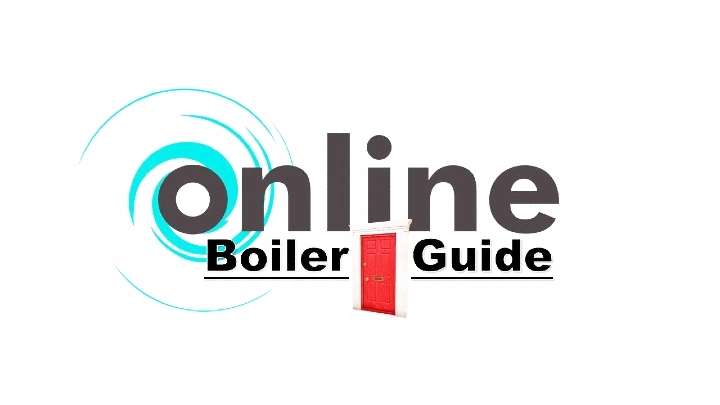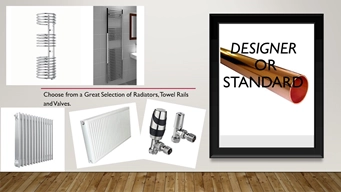

How to bleed your radiator.
Make sure your central heating system is turned off and the radiators are cool.
If you have more than one radiator to bleed,
start with the radiator furthest away from your boiler.
Insert the radiator key into the bleed valve and place the cloth underneath to capture any water.
.webp)
Common signs that your radiator needs bleeding
The top of the radiator is cold.
Turn your central heating on and wait for it to warm up.
The entire radiator is cold.
Mildew on the walls.
Strange noises from your heating.
.webp)
Is it best to bleed a radiator hot or cold?
You must not bleed a radiator when the heating is turned on as it may be too hot to touch, and hot water could spray out of it.
Ensure the heating is turned off before you begin bleeding a radiator.
Letting out air when the pump is running will only draw more air into the system from elsewhere.
Should water come out when bleeding a radiator?
Yes, it is perfectly normal for water to escape when a radiator is bled.
You'll likely notice some drips emerging when initially turning the bleed screw in an anti-clockwise direction.
Also water would pour out once the air was released, if the valve was to be opened fully.
.webp)
What happens if you bleed a radiator with the heating on?
You can't bleed a radiator when the heating is on, as it may be too hot to touch.
You could also get hot water spraying out of the radiator.
Use your radiator key to turn the valve at the top of the radiator.
Bleeding your radiators can cause the pressure to drop.
What happens if you don't bleed your radiators?
Because air doesn't conduct heat as well as water, you might notice these air pockets as cold patches on your radiators.
If you don't bleed your radiators, the problem will worsen.
Eventually, your central heating won't get to the correct temperature, even with it turned right up.
Does bleeding a radiator reduce boiler pressure?
Bleeding radiators If you bled your radiators recently, you may have lost some pressure.
That's because, when you bleed a radiator, air is released, which lowers the pressure in your boiler system
Can you bleed a radiator without a key?
For radiators with a slotted bleed screw, a simple screwdriver represents an ideal alternative to a bleed key.
Just insert the screwdriver into the slot and turn it in a counterclockwise direction to bleed the radiator.
Why do I constantly have to bleed my radiators?
All radiators require bleeding to remove air bubbles that form periodically during the life of a system.
It can occur when new water enters the system from the expansion tank or when a routine maintenance is carried out.
It could also be 'created' by the movement of the central heating system pump as it turns.
Do all radiators have bleed valves?
Most radiators are bled using a radiator key but if you're not sure, find a bleed valve.
They're located on the left or right side of the radiator at the top.
Check out on some newer radiators, the bleed valve has a straight groove for a flathead screwdriver.
If you do have a key put it on a keychain.
What is a bleed valve on a radiator?
A bleeder valve is where you put the radiator bleed key.
The bleeder valve on the radiator is usually situated at the top of the radiator and can be at either end.
This is where you put the bleed key (or screwdriver) to drain the radiator to let the trapped air escape.
radiator bleed valves -radiator bleed valve
Which way do you turn a radiator valve to bleed?
When you insert the radiator key into the bleed valve, you will feel them lock together.
Carefully turn the valve anti-clockwise – as the air begins to escape, you'll hear a hissing sound.
Be careful, the escaping air could be hot, keep sufficient distance.
Bleeding a radiator in 7 simple steps
.webp)
•Turn your heating on.
•Identify which radiators need bleeding.
•Turn off you’re heating and wait for the radiators to cool.
•Place a cloth below the radiator bleed valve.
•Open the valve and release the air.
•Close the valve.
•Check the boiler pressure.
Should water come out when bleeding a radiator?
Yes, it is perfectly normal for water to escape when a radiator is bled.
You'll likely notice some drips emerging when initially turning the bleed screw in an anti-clockwise direction.
And water would pour out once the air was released, if the valve was to be opened fully.
.webp)
Why does my radiator keep filling with air?
Air can build up in radiators as a result of installing the pump above the supply tank.
There can be an accumulation of hydrogen in the system as a result of rust within piping or the development of too much sludge.
Leaks are often a cause for air build-up.
This can happen if you frequently re-pressurise the boiler.
Why have I bled my radiator but still cold?
The thermostatic radiator valve, also known as the TRV, can sometimes cause radiators to remain cold even if the heating system is on.
The problem is usually caused by a stuck pin in the valve, and this is something that's easy to check for without having to call in an engineer.
The Internet is great for free advice, but if you have problems with your radiators it may be
smart to seek a professional to bleed your radiators.
ONLINE BOILER GUIDE invited one thousand postgraduate researchers from around the World to Submit a E-Thesis to raise Gas Safe Heating Engineers and Domestic Retail Homeowners knowledge on the Gas Safe Register which is the only official gas registration body of gas businesses and engineers in the United Kingdom, Isle of Man, Jersey, and Guernsey.
By law, all gas businesses must be on the Gas Safe Register. A gas engineer can only be aligned to a registered business and be issued with a license to undertake gas work on behalf of a registered business if they hold a valid and current qualification.
This evidence of competence relates only to matters of gas safety and is obtained by every engineer through a recognised route of training and assessment (much as the DVLA issues driving licences to those who have demonstrated their competence by passing a driving test).
Registration is only given based on the business having at least one gas safety qualified engineer.
You should only upload your E-Thesis after your internal examiner has approved any editorial and presentational corrections or minor deficiencies identified at your examination.
Education Creator DAVID PAUL MANNING – HEATING ENGINEER.
Publisher London: ONLINE BOILER GUIDE
Description:
The full text of British Standards, covering specifications for products, dimensions, and performance; methods; codes of practice; guides and glossaries.
Also find BS equivalents to ISO and EN standards. Updated Monthly.